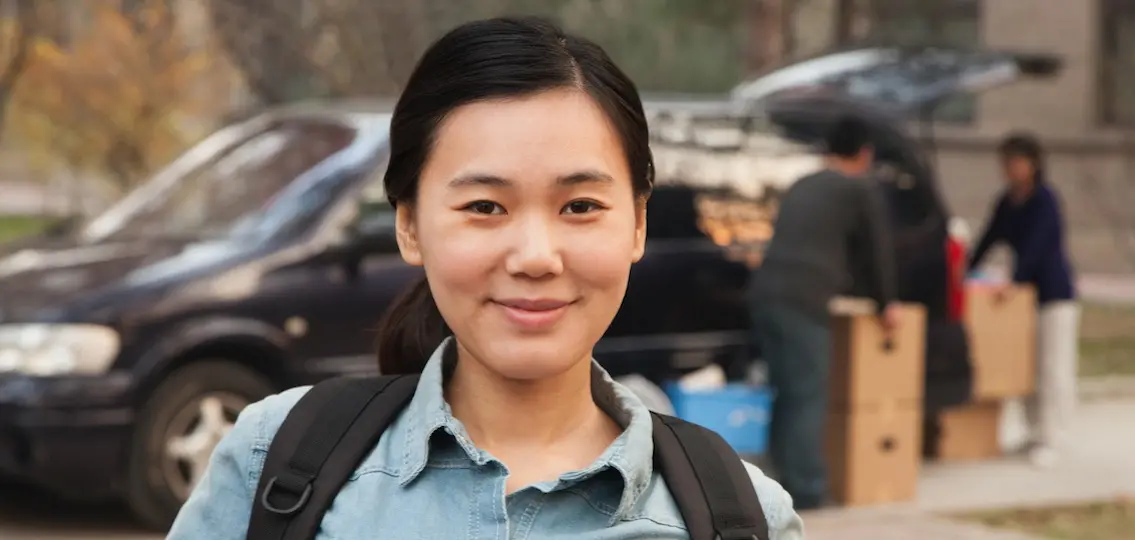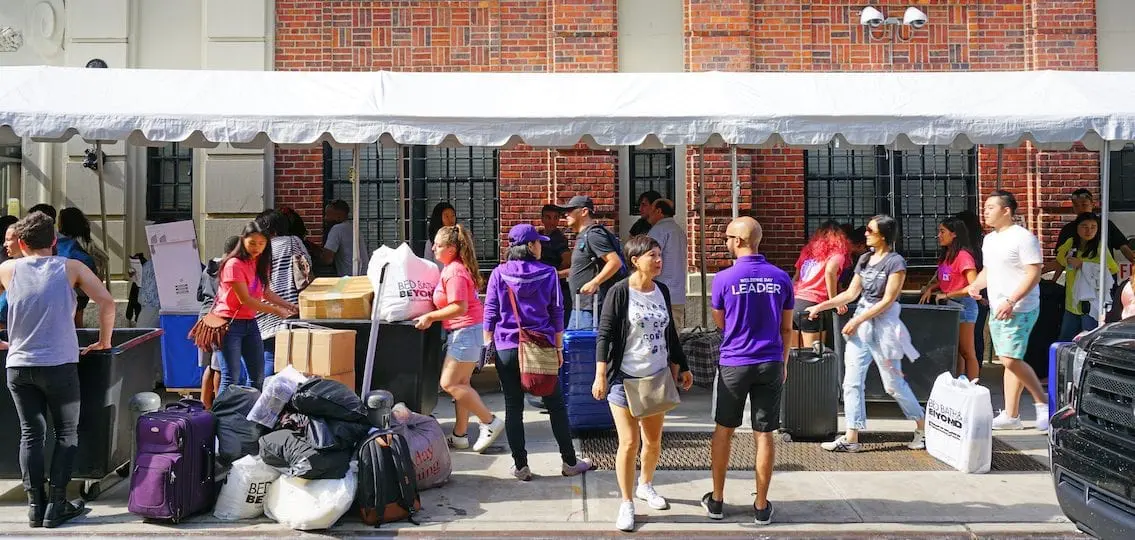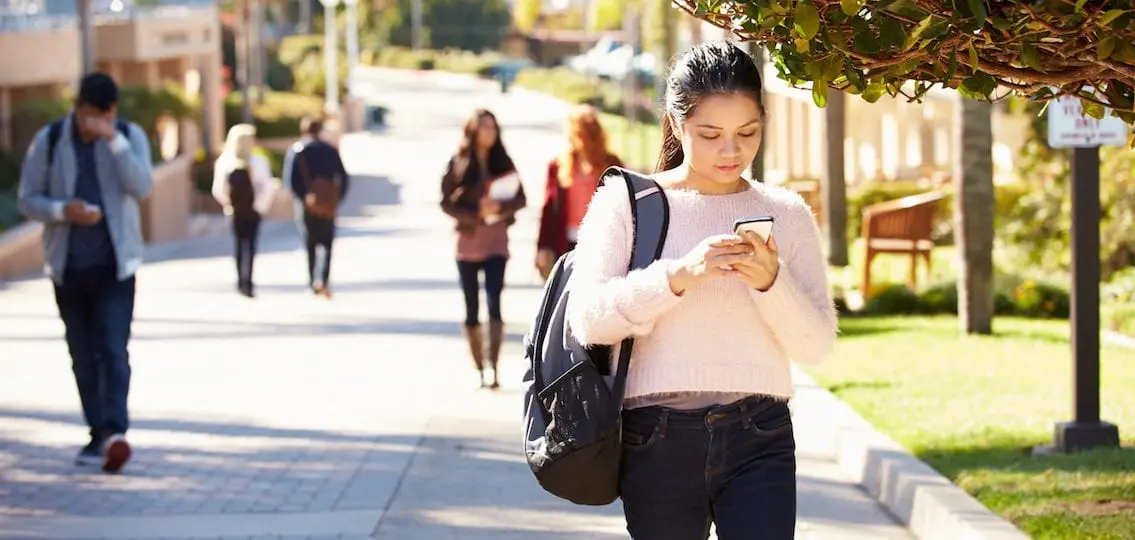When my oldest child wept and clung to my leg at preschool drop-off, his gentle, kindly teacher said to me, “Just go. He is always fine after you leave. It’s when you show him that you’re worried and linger that it gets harder.” He was right, and I learned. By the time my other two children entered preschool, I knew how to make the transition easier.

That first child of mine is now a college freshman. And that lesson learned in preschool echoed in our pandemic-era college drop-off.
The decision to take him to campus was not a difficult one for us. He’s attending a university in our state, not too far from home, so travel was easy. His school is relatively small, so the student body would be easier to contain in a safety bubble. Our state is currently among the safest for Covid-19 cases. The university sent detailed, clear, highly reassuring communications all summer about their plans. We knew he was eager to go, and we felt safe enough to let him try campus life despite the health risks.
As part of the safety plan, the university imposed restrictions on drop off: Our first stop would be at the Covid-19 testing tent (my son also had to have a test within the 72 hours before he arrived). Next, we were to proceed to the dorm, where the wristband that proved my son had just been tested would be his ticket to receive his ID and room key. Under no circumstances were we to enter the dorm. But we could help carry his belongings to the curb, as long as we wore our masks. After he was settled, we were to say our goodbyes. In order to limit exposure on campus, there was no place else on campus families could go.
These guidelines turned out to be so wise that I think colleges should follow them annually, even well after the pandemic is over and we are all safely vaccinated.
The process empowered my son from the first moments of his first year of college. He had to take responsibility. He had to ask questions of the friendly, helpful university officials at each location if he was unsure how to proceed. Most importantly, he had to own the moment.
My son rose to the occasion. He texted his roommate (who had arrived earlier in the day). Together they carried my son’s belongings into the dorm. My husband and I would not have been the type of parents to offer to make his bed or help put his clothes away. But in this scenario, there wasn’t even a question about it.
In recent years, many colleges have responded to hovering parents by creating on-campus events for them to participate in on the day of first-year drop off. The Dean of Student Life, the Provost, and the University President assemble to answer questions from anxious parents and reassure them that their children will be cared for.
Don’t get me wrong: dropping my child at a place away from home so he could tackle the next stage of life’s challenges without me is indeed an emotionally wrenching process, whether he is three years old or 18 years old. As parents, we will miss our children dearly. And we want assurance that they will be loved, looked after, and safe.
But college drop off should be their moment to enter independent adulthood. And we need to get out of the way.
Quickly. Lingering on campus—whether it’s to help set up a dorm room, hear from college administrators, or take a kid on that one last errand for the item they (or we) think is essential—sends a message that we have a role there. We don’t. Lingering on campus telegraphs some of our own anxieties to our children, and we shouldn’t allow that to happen.

My son texted during the first weeks of college when he needed answers about our health insurance or needed me to send a couple of items he forgot to pack. He also called when he wanted to catch up with all of us. But he has managed many challenges independently already, and we are proud. His preschool teacher was right; he’s going to be just fine.




